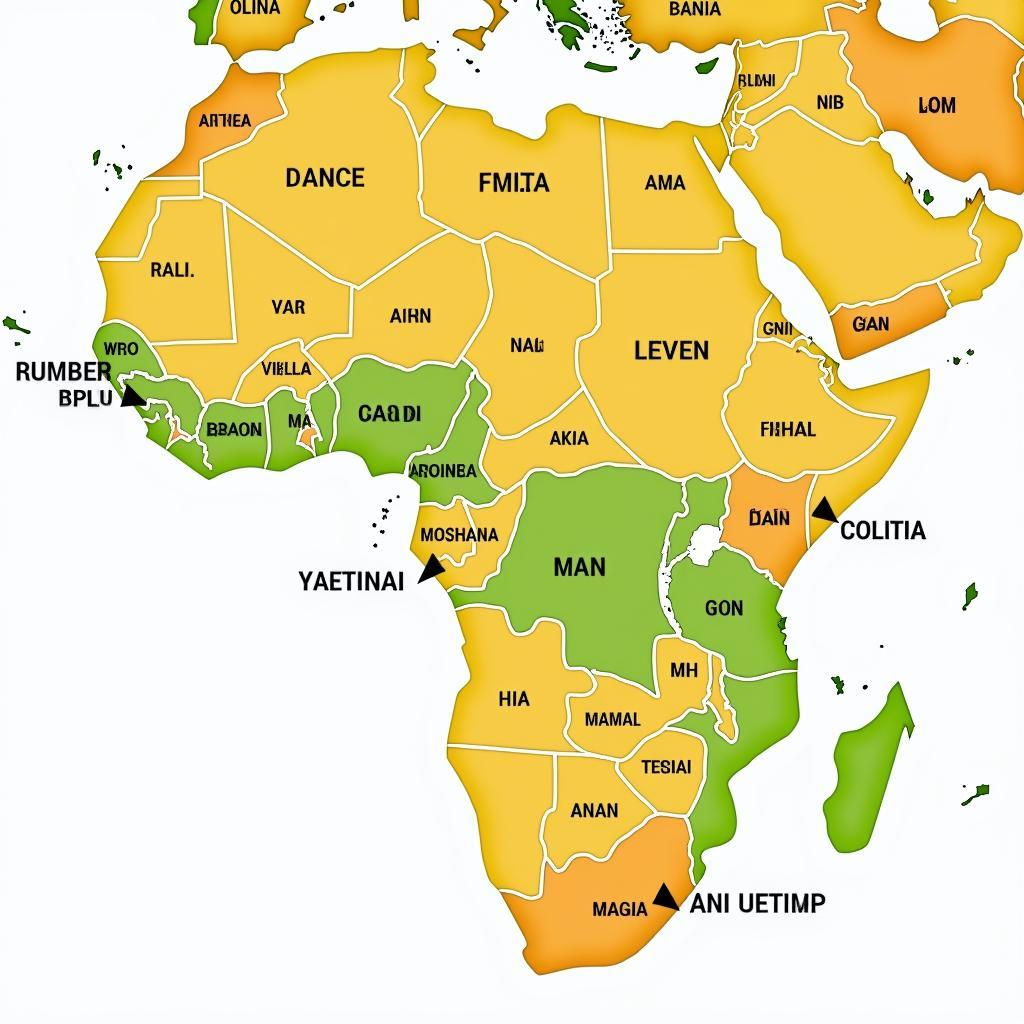Uncovering Your Roots: A Journey into African Ancestry
African Ancestry is a captivating journey of self-discovery, connecting individuals to the rich tapestry of the African continent. Exploring your African ancestry reveals not just your family history, but also a profound connection to a vibrant cultural heritage spanning millennia. It’s a journey of uncovering stories, traditions, and a sense of belonging that resonates across generations. Now, let’s delve deeper into the fascinating world of African ancestry.
The Significance of Tracing African Ancestry
Tracing your African ancestry offers a unique opportunity to connect with a history often obscured by the transatlantic slave trade. For many descendants of enslaved Africans, this journey is a powerful step towards reclaiming their heritage and understanding their identity. Genealogical research, DNA testing, and historical records can help piece together the puzzle of your family’s past, revealing migration patterns, ancestral homelands, and often, surprising connections to other individuals and communities. Understanding your African ancestry allows you to appreciate the resilience, strength, and cultural richness that has shaped who you are today.
For those simply curious about their origins, exploring African ancestry can be a fascinating exploration of human history and migration. It offers insights into the diverse cultures, languages, and traditions of the African continent, and highlights the interconnectedness of human populations across the globe.
Methods for Exploring Your African Ancestry
Numerous resources are available for those seeking to uncover their African roots. DNA testing services, like those specializing in African ancestry, can provide insights into your ethnic origins and connect you with potential relatives. These tests analyze your DNA to identify genetic markers associated with specific regions and ethnic groups in Africa. While DNA testing provides valuable information, it’s essential to complement it with genealogical research.
Genealogical research involves examining historical records like birth certificates, marriage licenses, census data, and ship manifests. These documents can offer clues about your ancestors’ names, locations, and even occupations. Online databases and archives are invaluable resources for this type of research. Combining DNA testing with genealogical research provides a comprehensive approach to tracing your African ancestry.
[Image-1|african-ancestry-dna-testing-kit|African Ancestry DNA Testing Kit|An image depicting a person holding an African ancestry DNA testing kit, ready to swab their cheek. The kit includes instructions and a pre-paid return envelope. The person looks excited and hopeful about discovering their African roots.]
The Impact of African Ancestry on Identity and Community
Discovering your African ancestry can be a deeply personal and transformative experience. It can foster a sense of belonging and connection to a larger community, both within your own family and with others who share similar ancestral origins. Many individuals find that learning about their African heritage strengthens their sense of identity and pride in their roots. It can also lead to a greater appreciation for African cultures, traditions, and contributions to global history.
Connecting with others who share your ancestral heritage can create a sense of community and shared experience. Online forums, social media groups, and cultural organizations provide opportunities to connect with individuals who are on similar journeys of self-discovery. Sharing stories, experiences, and information can enrich your understanding of your own ancestry and create lasting bonds with others.
Navigating the Challenges of African Ancestry Research
While tracing African ancestry can be incredibly rewarding, it’s essential to be aware of the potential challenges. The transatlantic slave trade and the historical erasure of African identities can make it difficult to find complete records. In some cases, records may be incomplete, inaccurate, or entirely missing. However, despite these challenges, dedicated researchers and genealogists are constantly developing new tools and strategies to overcome these obstacles and help individuals uncover their African roots.
[Image-2|african-ancestry-research-using-historical-documents|African Ancestry Research Using Historical Documents|An image showing a researcher examining historical documents in an archive. The documents include old maps, ship manifests, and handwritten records. The researcher is using a magnifying glass to examine details and is surrounded by books and other research materials.]
Embracing Your African Heritage
Discovering your African ancestry is just the beginning of a lifelong journey of exploration and connection. Embracing your heritage can involve learning about African cultures, languages, and traditions. It might involve traveling to Africa to connect with your ancestral homeland or participating in cultural events and celebrations. There are countless ways to honor your African heritage and integrate it into your life.
Dr. Adeola Oguntoye, a renowned historian specializing in African diaspora studies, states: “Tracing African ancestry is not just about finding names and dates; it’s about reclaiming a stolen history and celebrating the resilience of the human spirit.”
Professor Kwame Nkrumah, a leading expert in African genealogy, adds, “Connecting with your African roots is a powerful act of self-discovery and a testament to the enduring legacy of African cultures.”
Conclusion
African ancestry is a journey of discovery, connection, and empowerment. It’s about uncovering a rich and complex history, understanding your identity, and celebrating your heritage. While there may be challenges along the way, the rewards of connecting with your African roots are immeasurable.
[Image-3|celebrating-african-heritage-through-dance-and-music|Celebrating African Heritage Through Dance and Music|A vibrant image depicting a group of people celebrating their African heritage through traditional dance and music. They are wearing colorful clothing, playing drums, and singing. The scene is filled with joy and energy.]
FAQ
- How accurate are African ancestry DNA tests?
- What are the best resources for researching African ancestry?
- How can I connect with others who share my African ancestry?
- What are some common challenges in tracing African ancestry?
- How can I preserve my family’s African ancestry story for future generations?
- What are some ways to celebrate my African heritage?
- What are the ethical considerations of African ancestry research?
Common Ancestry Research Scenarios
- Difficulty finding records due to the slave trade.
- Uncertainties about specific ethnic origins within Africa.
- Connecting with living relatives based on DNA matches.
- Interpreting complex DNA results and genealogical data.
Further Exploration
Explore other articles on our website related to African history, culture, and genealogy to deepen your understanding.
Contact Us
For assistance with your African ancestry journey, contact us: Phone: +255768904061, Email: [email protected], or visit us at Mbarali DC Mawindi, Kangaga, Tanzania. We have a 24/7 customer service team.

